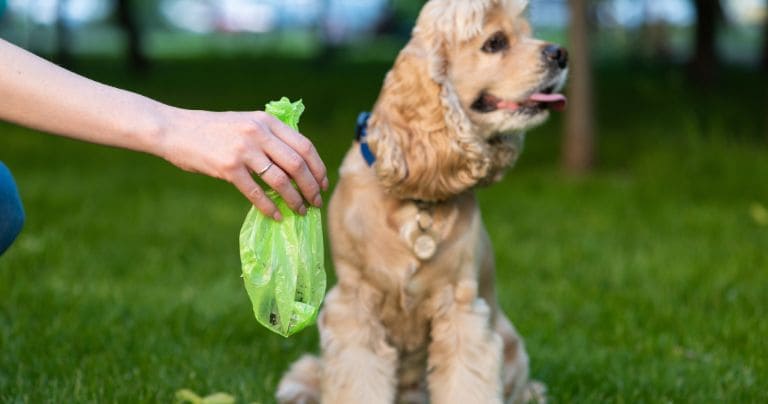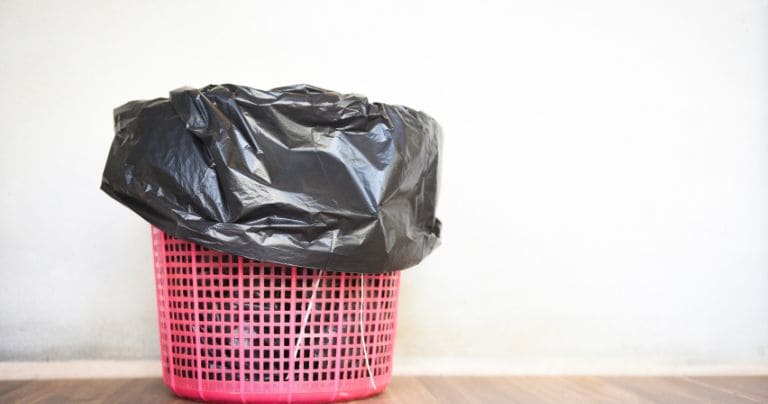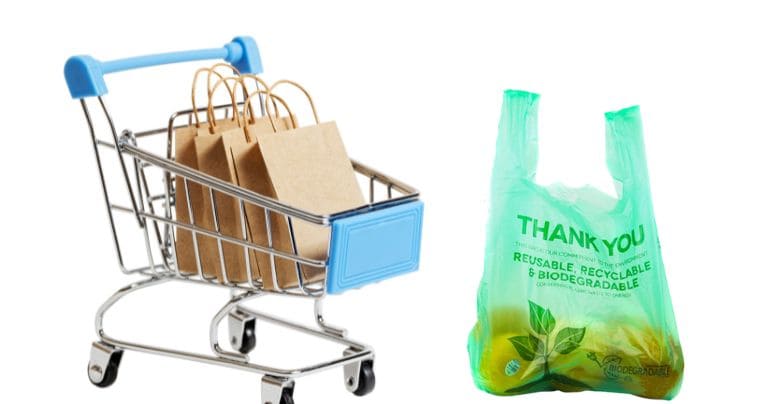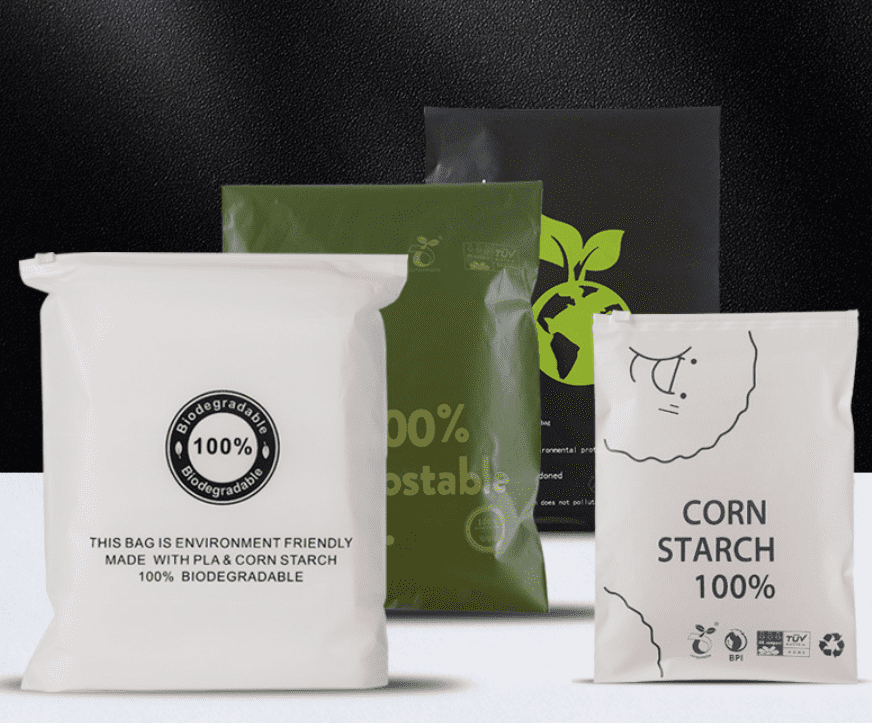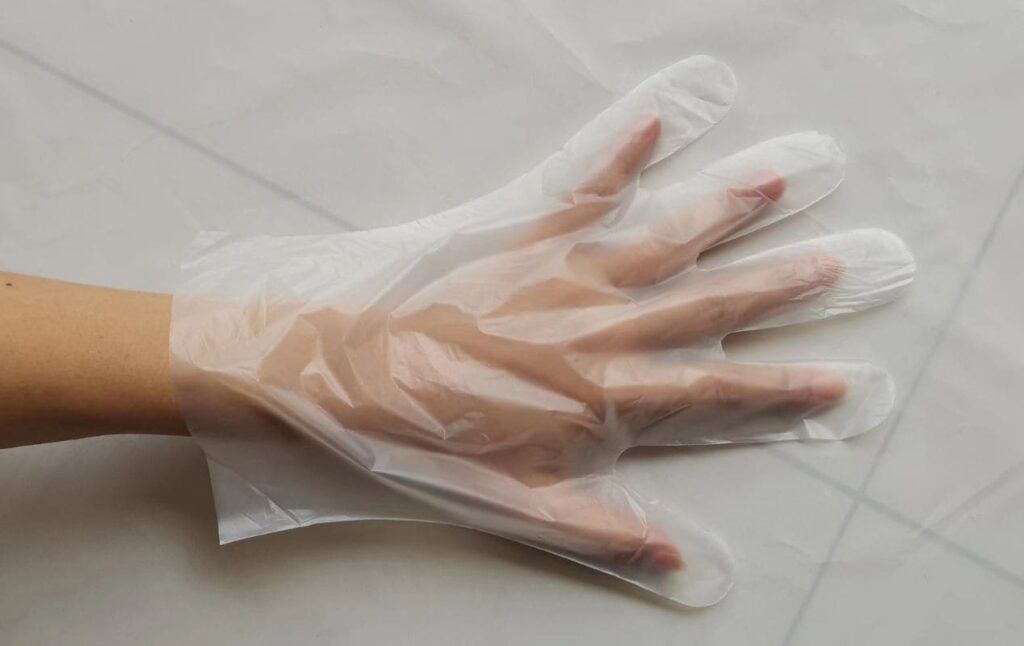Table of Contents
Have you ever seen compostable bags at your local supermarket? How are these thin, extra smooth, flimsy things can be any different than my regular plastic or paper bags? Why does my government want me to use compostable bags? Today, my friends, I will help you understand all about it.
Compostable bags are plastic bags that can disintegrate with the help of microorganisms. With aeration, these plastics are digested into water, Carbon dioxide (CO2), and biomass. For complete disintegration, you need to consider these five variables. There is temperature, moisture, nutrients, and the types and number of microorganisms.
In this article, we are going to deep-dive. We will start from knowing what they are made of, how to use them, and the advantages of using them. We will also debunk whether “eco-friendly”-labeled bags are as “green” as they are marketed. Lastly, we will learn about how to dispose of and decompose them.
-
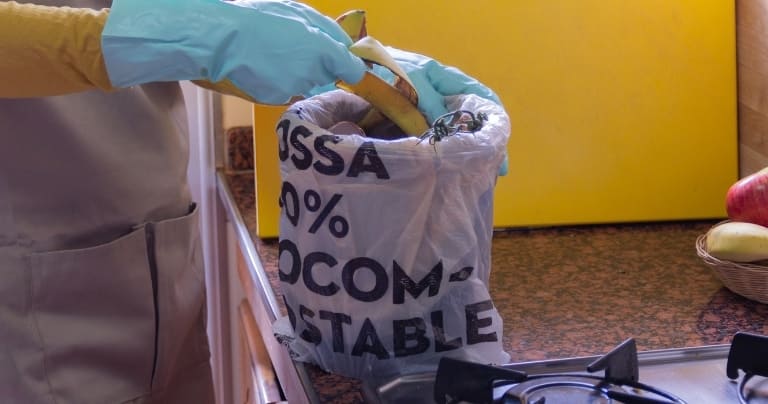
Kitchen Compostable Bags To Reduce Carbon Footprint
What are compostable bags?
Compostable bags are made of Plant based nmaterial. Feedstocks for plant-based polymers are beetroot, corn, potato, or cassava starch. Advanced fermentation technology converts plant sugars into Polylactic acid (PLA). Petroleum-based polymers commonly used as a blend is Polybutylene adipate-co-terephthalate) (PBAT). This polymer is suitable due to its biodegradability. The PLA biofilm, starch blends, and PBAT are combined to make compostable bags.
What are the benefits of compostable bags?
We keep hearing that compostable bags are good for the environment. But what does that actually mean? Here are the reasons why compostable bags are considerably better for the earth.
- They have a lower carbon footprint.
- They use of renewable feedstock as the main ingredient.
- The manufacturing requires less energy.
- It takes them only 180 days to degrade in landfills or home composting boxes. The process might be way faster in industrial composting facilities with controlled condition.
- They do not leach toxic chemicals.
- When well-handled, the usage of their usage can reduce plastic waste in landfills and bodies of water.
- Once degraded, you can use the produced compost as a soil conditioner or mulch for your plants. Thus, making compostable bags a circular product.
What can you use compostable bags for?
Like regular plastic bags, compostable bags are durable and leak-proof. If you decide to dispose of your compostable bags, most types of food scraps and yard waste can go into them. But, if you wish to compost them yourself, you need to be a bit careful. There are foods and toxic chemicals which might interfere with the composting process. You should not throw these following items into the bags.
- Oily and greasy food
- Meat and fish scraps
- Dairy products
- Branches and plants treated with pesticides
- Charcoal ash
The foods that are on the list will produce pungent smell. They will invite rodents to the composting bin which can cause health hazard. Additionally, pesticides or herbicides can interfere with the growth and digestion of composting microorganisms. In the worst case, these chemicals would kill the microorganisms and stop the composting process.
-
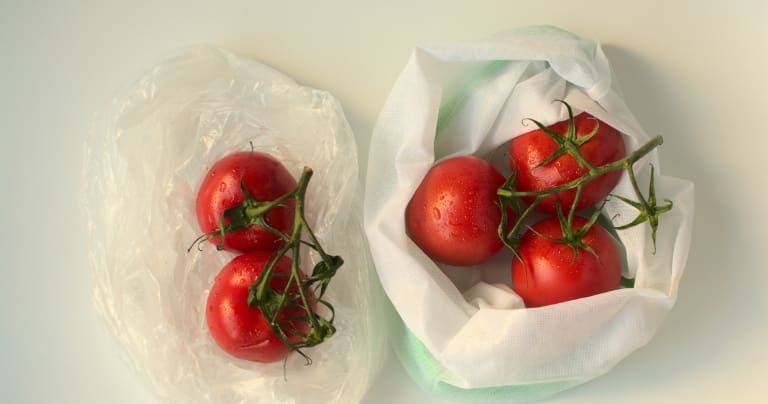
Compostable-Grocery-Bags-In-Supermarket-1
Compostable bags can also be a great alternative to paper and plastic shopping bags. Some companies also sell compostable poop bags for your four-legged companions. However, you should note that some animals carry diseases in their feces. Thus, you should never put animal excrement into your home composting bin.
Nowadays, some countries even already banned the use of regular plastic bags. Seek more information at your local municipality offices/website for their plastic policies.
Why should I use compostable bags instead of plastic or paper bags?
Compostable bags, as mentioned earlier, have many positive impacts on the environment. Yet, it is natural that you might wonder how well they perform compared to paper or plastic bags.
First, compostable bags outperform paper bags on their water resistance. Nonetheless, plain paper bags are still an eco-conscious alternative. The main component of paper is cellulose. Naturally, it will also break down into water, CO2, and trace amounts of inorganic matter. This comparison does not apply to colored and glossy papers. They might contain heavy metals and non-degradable petroleum-based plastic film.
Second, it is advised to use compostable bags to reduce land and water plastic pollution. Many countries have policies on conventional plastics’ pricing, manufacturing, distribution, and more. Only a few countries have completely banned their usage. To manufacture them, petroleum oil or natural gas is converted into plastic polymers. Some examples are Polyvinyl chloride (PVC), Polypropylene (PP), and high-density polyethylene (HDPE).
For decades, plastic has been a staple product in our life due to its durability, water and thermal resistance. Unfortunately, 60 years since its invention, the environment is suffering from plastic pollution. The durability of plastic disallows them to disintegrate, even after decades. Poor waste management and the lack of public awareness also contribute to the crisis.
-
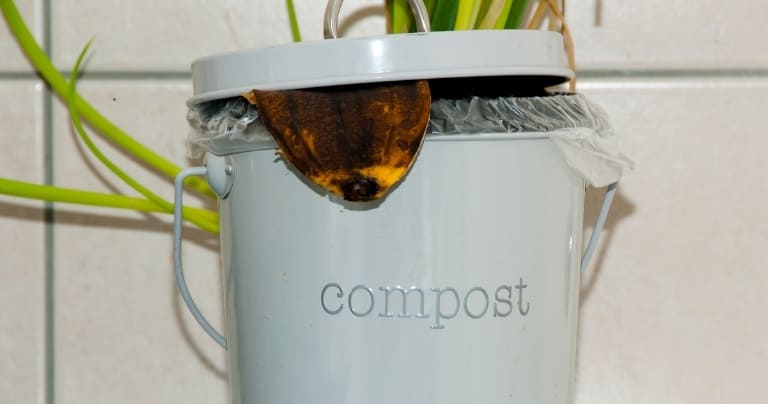
Compostable Trash Disposal
Compostable vs biodegradable vs bio-based – are they the same thing?
Compostable and biodegradable are not the same thing. Claiming they are the same is like saying banana is a fruit and all fruit are bananas. Only some of biodegradable bags are compostable. The others might contain elements that are toxic to the composting environment. Composting is an accelerated way of a degradation process. Hence, other biodegradable plastic bags might take a longer time to decompose.
What about “bio-based” labeled plastic?
This is where company marketing can be misleading for a lot of people. Although made of natural material, some bio-based plastics are like regular plastic. Two examples of them are Polyethylene terephthalate (PET) and Polyethylene furanoate (PEF). The PET and PEF plastics are recyclable but not biodegradable. On the flip side, it is possible to make compostable plastics from petroleum, for example, PBAT.
Biodegradable or “greenwashing” campaign?
There are other types of plastics that are falsely marketed as biodegradable. Photo-degradable and oxo-degradable bags. They are made of conventional plastics modified with chemical or bio-additives. These additives induce the disintegration of plastic into smaller particles. Photodegradable plastics will break down due to exposure to light over a long period. Meanwhile, oxo-degradable plastics degrades due to an oxidation process.
Many reports suggest these plastics are not the solution to the plastic crisis. They do not degrade to the molecular level, creating microplastics. Their microscopic size gives the illusion that the plastics are gone, even if it is not. This makes them a lot easier to contaminate the environment and a lot harder to be collected.
-
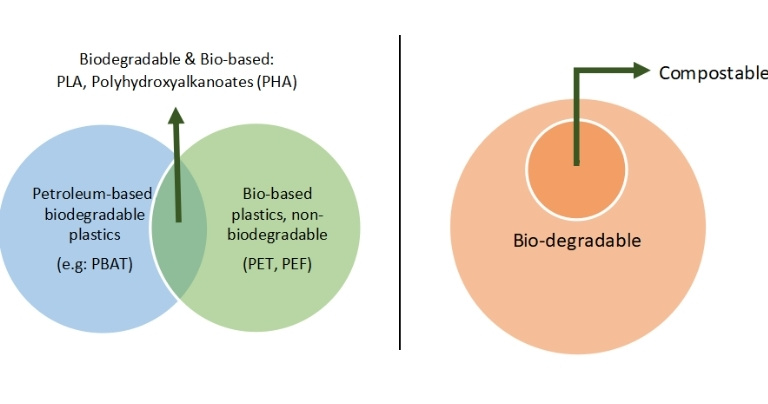
Biodegradable or Bio-based
Interesting facts about how compostable bags break down
Compostable plastic needs a “special” environment to fully break down. They cannot decompose on their own or in aquatic environments. A composting process uses microorganisms such as microbes or fungi. This biodegradation converts organic waste into CO2, water, and biomass, called compost. It is a nutritious dirt-like material used as a soil conditioner or mulch. You can put it onto your plant to help them flourish.
What is the ideal condition for composting?
There are some parameters you need to consider for successful composting. They are moisture content, carbon source, nitrogen source, temperature, and good aeration. Moisture is helpful to break down solid waste. Carbon, Nitrogen, and air are compulsory for the growth and activity of microorganisms.
It is best to control the ratio of carbon and nitrogen by having a one-to-one ratio of green and brown compost. You can achieve proper aeration by periodically mixing the composting bin. Lastly, you also need to pay attention to the particle size and the type of microorganism you use. Different microorganism requires different optimum temperature ranging from 40 to 60°C.
How do I dispose of compostable bags properly?
The first option is to shred them and put them in a home-composting box, if you have one, along with your organic waste. Compostable bags are engineered to gradually break down. Thus, you should not put compostable bags in the recycling bin.
It is too costly for recycling facilities to separate recyclable and non-recyclable items. A contaminated batch of a recycling bin will most likely end up in a landfill or be incinerated.
If you decide to dispose of them, make sure they go into the organic waste bin. You can also bring them to an industrial composting facility in your area.
Lastly, regulations on plastics are different for every country. Thus, always follow your local municipality waste management regulations. By being informed, you can know for sure that your act of service to the society and the environment counts.
